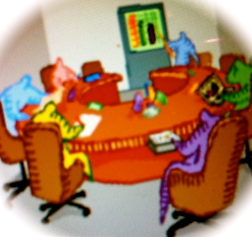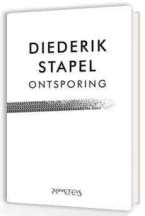
TFSI workgroup
Saturday Night Brainstorming: The TFSI on NHST–part reblog from here and here, with a substantial 2015 update!
Each year leaders of the movement to “reform” statistical methodology in psychology, social science, and other areas of applied statistics get together around this time for a brainstorming session. They review the latest from the Task Force on Statistical Inference (TFSI), propose new regulations they would like to see adopted, not just by the APA publication manual any more, but all science journals! Since it’s Saturday night, let’s listen in on part of an (imaginary) brainstorming session of the New Reformers.
^^^^^^^^^^^^^^^^^^^^^^^^^^^^^^^^^^^^^^^^^^
Frustrated that the TFSI has still not banned null hypothesis significance testing (NHST)–a fallacious version of statistical significance tests that dares to violate Fisher’s first rule: It’s illicit to move directly from statistical to substantive effects–the New Reformers have created, and very successfully published in, new meta-level research paradigms designed expressly to study (statistically!) a central question: have the carrots and sticks of reward and punishment been successful in decreasing the use of NHST, and promoting instead use of confidence intervals, power calculations, and meta-analysis of effect sizes? Or not?
Most recently, the group has helped successfully launch a variety of “replication and reproducibility projects”. Having discovered how much the reward structure encourages bad statistics and gaming the system, they have cleverly pushed to change the reward structure: Failed replications (from a group chosen by a crowd-sourced band of replicationistas ) would not be hidden in those dusty old file drawers, but would be guaranteed to be published without that long, drawn out process of peer review. Do these failed replications indicate the original study was a false positive? or that the replication attempt is a false negative? It’s hard to say.
This year, as is typical, there is a new member who is pitching in to contribute what he hopes are novel ideas for reforming statistical practice. In addition, for the first time, there is a science reporter blogging the meeting for her next free lance “bad statistics” piece for a high impact science journal. Notice, it seems this committee only grows, no one has dropped off, in the 3 years I’ve followed them.
^^^^^^^^^^^^^^^^^^^^^^^^^^^^^^^^^^^^^^^^^^
Pawl: This meeting will come to order. I am pleased to welcome our new member, Dr. Ian Nydes, adding to the medical strength we have recently built with epidemiologist S.C.. In addition, we have a science writer with us today, Jenina Oozo. To familiarize everyone, we begin with a review of old business, and gradually turn to new business.
Franz: It’s so darn frustrating after all these years to see researchers still using NHST methods; some of the newer modeling techniques routinely build on numerous applications of those pesky tests.
Jake: And the premier publication outlets in the social sciences still haven’t mandated the severe reforms sorely needed. Hopefully the new blood, Dr. Ian Nydes, can help us go beyond resurrecting the failed attempts of the past. Continue reading →



























